Nuclear suits our strategic needs today and our energy needs tomorrow
Just as nuclear-powered subs will come to pass, no matter the indolence of our politicians, so too will nuclear energy.
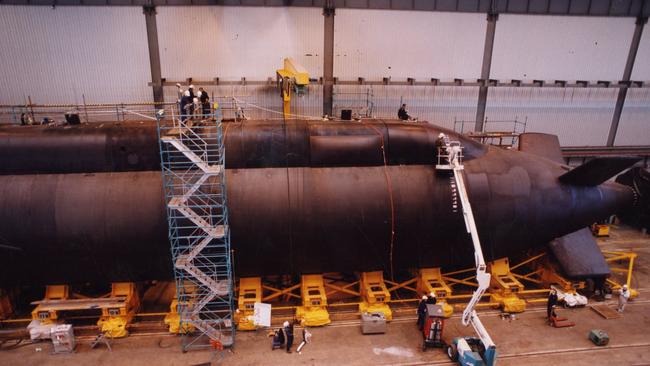
We have consistently made the wrong decisions and avoided the best options, condemning ourselves to burdensome costs and sub-optimal defence outcomes. This week’s historic correction from Scott Morrison will embolden and strengthen our defence and security settings for decades to come even though, infuriatingly, it is based on mere acceptance of what has been obvious and logical for decades.
The submarine preoccupation began in the mid-1980s when Labor was dominant in Canberra and Adelaide, and the Collins class project represented the grand aspirations of the prime minister Bob Hawke and South Australian premier John Bannon.
From the outset, the project was as much about industrialisation, job creation, pork-barrelling and politicking as it was about maritime defence.
Over the past 35 years or more, the vessels built at Osborne, near Port Adelaide, have probably become the most expensive media conference backdrops ever created. From keel-laying ceremonies to project adjustments, politicians and media have regularly traipsed down to construction site, especially in the lead-up to state and federal elections, and every now and then a couple of the subs would actually go to sea.
The “dud subs”, as they became known, provided rich fodder for cartoonists and oppositions. But whenever political parties swapped from opposition to government, they seemed to suspend their submarine scepticism and climb on board.
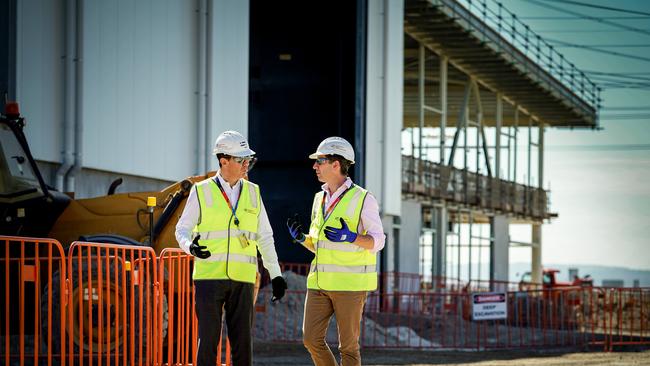
Eventually the Collins class vessels won some praise, and they continue to operate now – some say reasonably effectively – yet the most obvious lessons they taught us were studiously ignored. The entire saga should have demonstrated that designing and building our own adapted submarine design was risky and costly, and denied us the opportunity to procure the best vessels at the best price.
Still, without the sub project, where would the politicians go for all their media events and job creation announcements?
So it came to pass that instead of doing the obvious and resolving to source the best submarines off-the-shelf from our key allies, we repeated the entire unique-build at Osborne process, sacrificing both quality and cost to meet political goals.
What is worse is that we deliberately limited ourselves to diesel-powered submarines rather than nuclear, knowing this would make them inferior. Labor and Liberal politicians managed to fabricate excuses for failing to embrace the nuclear option – lack of expertise, inordinate costs, insufficient infrastructure – but these impediments were ignored when it came to the diesel boats.
The superiority of nuclear vessels is beyond question. Just ask what type of submarines are used by the most sophisticated navies in the world.
We have had politicians from both major parties, from prime ministers and defence ministers down, for term after term, and from government and opposition, spinning obvious untruths to voters about the best available options – pretending that diesel was up to the task.
They have done so for political reasons; a desire to pork-barrel though defence procurement, and a reluctance to take on the political challenge of advocating for nuclear.
We have now arrived at the right decision, when it is almost too late, and only because the increasingly fraught strategic environment has exposed our vulnerability. It will be decades before we have the submarine capability that we have aspired to since the 1970s – but at least we might finally have it.
The cost and model and other crucial details will not be known for a year or more, and we are committing to build the vessels at Osborne – but of course. There must be some hope the build will be closer to a cookie cutter model using imported US or UK designs – rather than Swedish or French where even language added difficulties – but we should not underestimate our own ability to complicate the process.
The lesson here is that good policy routinely is overlooked in pursuit of politics. It is a truism that the more political considerations are allowed to influence policy decisions, the worse those decisions usually become.
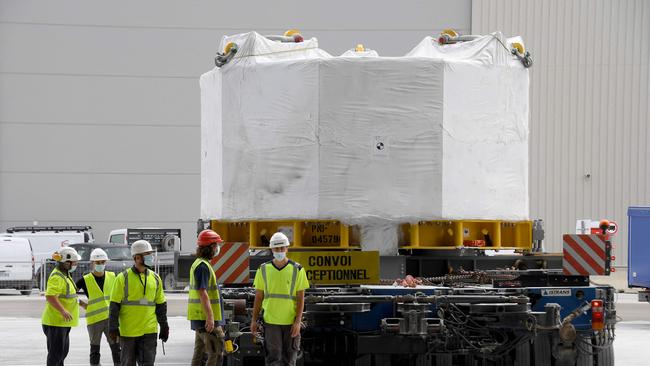
Yet this widely accepted reality seldom tempers the politicking of the practitioners because those making the decisions are always tempted to try anything to maximise their political success.
If only they could insulate themselves from the polls, focus groups, campaign advisers, and media pundits, they might actually just make the most logical decisions – choose good policy – and discover that the politics will look after itself.
Morrison is likely to find this momentous decision – a simple retreat to the obvious defence and strategic imperative – delivers political benefits. In the lead-up to an election, in a world of flux and threats, voters will see that he has acted decisively; notwithstanding the years and billions wasted, most will realise that the reset makes sense.
They will also recognise the sense of deepening our ties with our two most powerful and longstanding friends, who share our values. And the electorate viscerally will grasp the benefit of this arrangement in helping to anchor US and British engagement in the Indo-Pacific.
A possibly apocryphal observation about the Americans, often attributed to Winston Churchill, notes that they can always be relied upon to do the right thing, only after they have exhausted all the other possibilities. The same is broadly true of politicians, and it is certainly true of Australia in this instance.
Likewise, if an idea or a policy decision is compellingly rational, the political process is likely to end up there eventually, no matter the politicking and diversions along the way. This means that just as nuclear-powered submarines will come to pass, no matter the indolence of our politicians, so too will nuclear energy eventually be developed in this country.
This nation has run a nuclear reactor for experimental and medical purposes safely and effectively at Lucas Heights since 1958; we have mined uranium since Radium Hill in the early days of the federation; we hosted atomic weapons tests in the 1950s and 1960s; and we are the world’s third-largest exporter of uranium. Yet nuclear energy is illegal in this nation, and in some states there are laws even against exploring for uranium.
In a world committed to reducing greenhouse gas emissions to net zero, this madness cannot stand. Neither the world nor Australia will be able to reach net-zero emissions without massively expanding nuclear energy.
Whatever individuals might think about global warming, different assessments of the rates of change or the harm and benefits from warming, and the myriad policy options proposed to deal with the issue, there is one fact that seems plain; the world is going to decarbonise. The weight of political, diplomatic, business, shareholder and social pressure is all pushing towards net zero; for good or ill, that is where we are heading, sooner or later.
If it can be done with minimal economic and social harm, there can be little downside – as Margaret Thatcher put it – to giving the planet the benefit of the doubt. The trouble is that the so-called solutions proffered so far, of widespread renewables coupled with storage, are both financially devastating and practically impossible, so that they promise maximum pain with no gain.
The challenge is pretty clear, a global need for more energy, not less, and it needs to be reliable, affordable, and sustainable (or emissions free). There is only one form of energy that meets all three criteria – nuclear.
Morrison and Anthony Albanese both insist we can run nuclear subs but will maintain our resistance to nuclear energy. This is an argument that is all about political expediency and cowardice that eventually will be overwhelmed by reality.
Both major parties will maintain that position in lock-step beyond the federal election. But just as the tortured path of politics eventually could not resist the compelling logic of nuclear submarines, the economic, environmental and energy needs of the nation and the world will eventually overwhelm the politics – probably within a decade – and see us choose to develop a domestic nuclear energy industry.



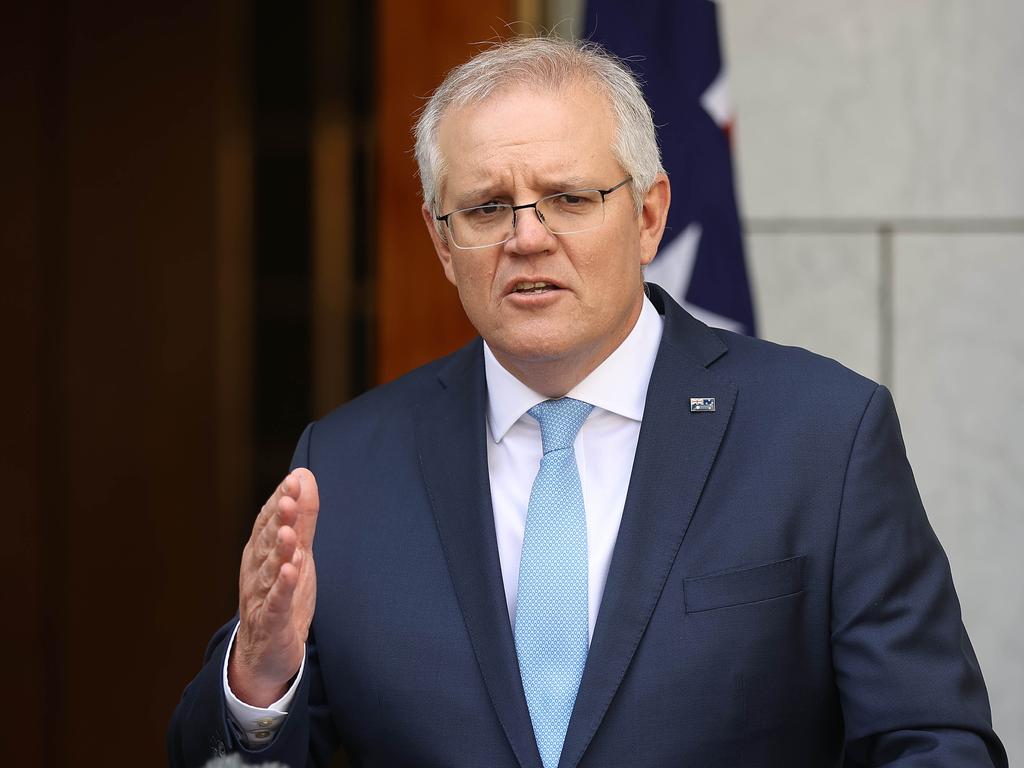

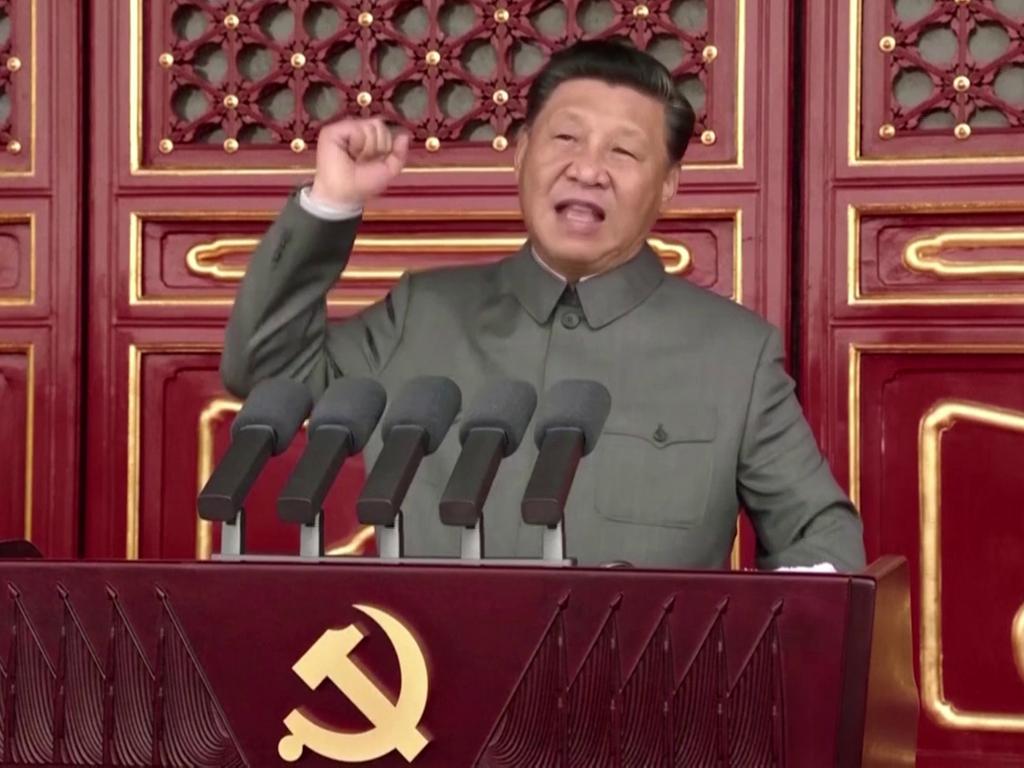


What is it about submarines that so distorts the imagination of our politicians? In 2015, the late Democratic Labour senator John Madigan said “submarines are the spaceships of the ocean” – and there might be something in this because for the past four decades our politicians have flapped around sub projects like a bunch of space cadets.